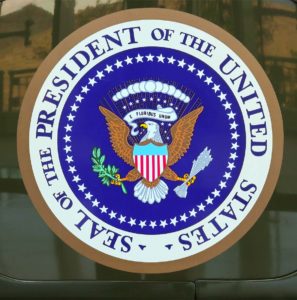News
The Future of the Workplace under the Biden Administration
 With the inauguration of President Biden on January 20, 2021 and the current balance of power in Congress, employers should anticipate changes in labor and employment policies, regulatory guidance, and legislation relating to COVID-19, worksite safety rules, wage and hour laws, and anti-discrimination and retaliation protections. While we cannot predict all of the potential impending impacts upon the workplace, this article identifies our top ten areas for employers to watch this year.
With the inauguration of President Biden on January 20, 2021 and the current balance of power in Congress, employers should anticipate changes in labor and employment policies, regulatory guidance, and legislation relating to COVID-19, worksite safety rules, wage and hour laws, and anti-discrimination and retaliation protections. While we cannot predict all of the potential impending impacts upon the workplace, this article identifies our top ten areas for employers to watch this year.
-
Increased OSHA Investigations and Enforcement
President Biden has issued his “4-Point Plan for Our Essential Workers” that includes 1) doubling the number of Occupational Safety and Health Administration (“OSHA”) investigators to enforce the law and existing standards and guidelines; 2) ensuring that frontline workers, like grocery store employees, have access to personal protective equipment; 3) establishing and enforcing health and safety standards for workplaces; and 4) enacting premium pay for frontline workers.
Consistent with this plan, the Department of Labor (“DOL”) has already started to make substantive changes to COVID-19 related guidance by recently issuing stronger workplace guidance on coronavirus entitled: “Protecting Workers: Guidance on Mitigating and Preventing the Spread of COVID-19 in the Workplace.” This new guidance provides additional recommendations for limiting the spread of COVID-19, such as separating and sending home infected or potentially infected people from the workplace, implementing physical distancing, installing barriers where physical distancing cannot be maintained, and suppressing the spread by using face coverings. Employers who fail to follow the guidance may be subject to increased OSHA complaints.
-
COVID-19 Related Legislation
 President Biden has called on Congress to extend the Families First Coronavirus Response Act (“FFCRA”) until September 30, 2021, including reinstating the paid sick and family and medical leave requirements of the FFCRA and eliminating its current exemptions for employers with more than 500 employees or fewer than 50 employees. In addition, it is anticipated that the Biden Administration will take steps consistent with their pledge to protect workers from COVID-19, including strengthening anti-retaliation guidance and enforcing the OSH Act’s general duty clause.
President Biden has called on Congress to extend the Families First Coronavirus Response Act (“FFCRA”) until September 30, 2021, including reinstating the paid sick and family and medical leave requirements of the FFCRA and eliminating its current exemptions for employers with more than 500 employees or fewer than 50 employees. In addition, it is anticipated that the Biden Administration will take steps consistent with their pledge to protect workers from COVID-19, including strengthening anti-retaliation guidance and enforcing the OSH Act’s general duty clause.
At the state level, on January 25, 2021, the Florida Senate Judiciary Committee voted to move forward SB 72: Civil Liability for Damages Relating to COVID-19, which would shield businesses from coronavirus-related lawsuits so long as the business made a good faith effort to comply with government-issued health standards or guidance in effect at the time the cause of action accrued. A similar bill is pending in the Florida House of Representatives.
The interaction between these state and federal approaches to COVID-19 litigation will become increasingly impactful as they evolve.
-
Revised Wage and Hour Guidance and Increased Enforcement
President Biden has pledged that his administration will “[a]ggressively pursue employers who violate labor laws, participate in wage theft, or cheat on their taxes by intentionally misclassifying employees as independent contractors”. Consistent with this pledge, the DOL has withdrawn two recent opinion letters that addressed when an individual may be considered an independent contractor. In addition, it is unclear whether the Final Rule on independent contractor status that was issued on January 6, 2021, prior to President Biden taking office, will become effective March 8, 2021, as currently scheduled. Many anticipate that the Biden Administration will take steps to delay the effective date of the rule and possibly rescind the Final Rule for a more worker friendly classification test.
-
Federal Minimum Wage and Tipped Wages
The federal minimum wage has been set at $7.25 since 2009. Employers can expect that the Biden Administration will continue to advocate for an increase of the federal minimum wage to $15 per hour. The current Raise the Wage Act introduced in the Senate on January 26, 2021 provides that the federal minimum wage would increase in increments to $15 per hour by June 2025 and thereafter adjust to increase at the same rate as median hourly wages. Under Florida’s new constitutional mandate, Florida’s minimum wage rate will increase to $10 per hour in September 2021 and then will increase by $1 each year until it reaches $15 per hour in 2026.
President Biden has also indicated that he will seek to end tipped minimum wages, which is common in the hospitality and restaurant industries. Specifically, tipped employees are paid a lower minimum wage with the expectation that they will make up the difference in tips. Employers get to credit the tips toward that minimum wage, so long as they ensure employees make at least the current state or federally mandated minimum wage. In keeping with President Biden’s approach to tipped wages, the DOL recently withdrew an opinion letter which had expanded the applicability of tip pools in these settings.
If the Biden Administration is able to increase the federal minimum wage and end use of the tip credit, employers in industries that typically take advantage of the tip credit could face substantially higher labor costs.
-
Greater LGBTQ+ Discrimination Protections and Enforcement
During his first days in office, President Biden issued his “Executive Order on Preventing and Combating Discrimination on the Basis of Gender Identity or Sexual Orientation.” This Executive Order sets forth the administration’s policy to 1) prevent and battle discrimination based on gender identity or sexual orientation; 2) fully enforce Title VII and other laws that prohibit discrimination based on gender identity or sexual orientation; and 3) address discrimination that overlaps with other forms of discrimination, such as race or disability.
President Biden has also indicated his support for the Equality Act, a bill that has already passed the House and would prohibit employers from discrimination on the basis of sexual orientation and gender identity. While the impact of this proposed bill is likely to be minimal due to the U.S. Supreme Court’s decision this past summer in Bostock v. Clayton County Georgia, where the Court determined that Title VII prohibits discrimination based on sexual orientation and gender identity, the Equality Act also contains new disclosure and reporting requirements.
-
Expansion of Other Anti-Discrimination Protections
President Biden has promised to sign into law the Pregnant Workers Fairness Act, which would require employers to offer employees reasonable work accommodations when their abilities are limited by pregnancy, childbirth, or a related condition. Under this proposed law, reasonable accommodations likely include granting short breaks for employees to express breast milk (already required under federal law) or even temporarily modifying job duties.
In addition, President Biden has committed to signing the Paycheck Fairness Act into law. The proposed law, which has already passed the House, purports to tackle wage discrimination on the basis of gender and would substantially limit the ability of employers to justify paying women less than men.
President Biden has also indicated his intention to sign the Bringing an End to Harassment by Enhancing Accountability and Rejecting Discrimination in the Workplace Act (“BE HEARD Act”), which would significantly expand the applicability of the anti-discrimination provisions of Title VII of the Civil Rights Act. Currently, the prohibition against employment discrimination under Title VII only applies to businesses with fifteen or more employees, but not to individuals who work alone, or in small workplaces. The BE HEARD Act would extend those protections to all employees regardless of business size, as well as to those individuals who do not fall under the category of “employee,” including independent contractors, volunteers, interns, fellows, and trainees.
These changes could materially increase the number of claims submitted to the Equal Employment Opportunity Commission (“EEOC”) and those litigated in court, since employers would no longer be able to dismiss such claims on the ground that they did not have the requisite number of employees or that the aggrieved individual was not an employee. Employers would also likely need to develop new policies and training for contractors and vendors.
-
Increased EEOC Involvement
Consistent with the Biden Administration’s focus on expanding the EEOC, the EEOC has launched a new process for the public to request formal opinion letters concerning issues arising under Title VII and Age Discrimination in Employment Act.
The EEOC will also begin collecting 2019 and 2020 EEO-1 Component 1 data from covered employers beginning in March 2021.
-
Paid Family Leave
The Biden Administration has indicated that family leave is a top priority, particularly given the COVID-19 pandemic and its strain on families. As such, President Biden has openly supported the Family and Medical Insurance Leave Act, known as the FAMILY Act. The FAMILY Act, if passed, would provide employees with up to 12 weeks of partial income for taking time off for:
- their own serious health conditions, pregnancy and recovery from childbirth;
- the serious health condition of a child, parent, spouse or domestic partner;
- the birth or adoption of a child; or
- particular military caregiving and leave purposes.
The FAMILY Act would apply to employers of all sizes and would also apply to part-time employees. The FAMILY Act would require employees and employers to both contribute to a fund and the fund would provide a certain percentage of the employee’s compensation if the employee were unable to work due to one of the qualified reasons.
-
Restrictions on Employment Agreements
President Biden has stated that his administration would take an aggressive approach to non-compete agreements. Specifically, President Biden has stated that he would support federal legislation that would eliminate non-compete agreements and would only allow non-compete agreements “that are absolutely necessary to protect a narrowly defined category of trade secrets.”
Additionally, President Biden has also indicated that he supports an outright ban on all no-poaching agreements. The Department of Justice Antitrust Division already takes the position that such agreements – where companies agree not to hire or recruit one another’s employees – are generally unlawful.
If non-competes are limited by legislation enacted during the Biden Administration, employers would have to consider new ways to protect their customer relationships, financial investments, business goodwill and confidential information.
-
Expansion of Short-Time Compensation State Programs

Currently, twenty-seven states, including Florida, have enacted “short-time” compensation programs (STC)–also known as “shared work” or “work sharing” programs—that are designed to avoid mass lay-offs or unemployment. By participating in these programs, employers experiencing a temporary slowdown can keep workers employed by reducing work hours, while the state governments make up the difference in wages.
These programs have become increasingly popular in light of the COVID-19 pandemic. States with STC programs usually disqualify employers from participating in this program if they reduce employee work hours by more than 50 percent or 60 percent. Biden proposes several ideas to “scale up” short-time compensation programs, including:
- creating a tax credit for small businesses to help them cover the costs of their workers’ benefits as well as other overhead costs;
- waiving any increase in employment taxes for employers who decide to participate in STC programs;
- establishing 100 percent federal financing for these programs, instead of relying on state funds that are likely running low due to the current pandemic;
- raising caps on employer work reductions in current STC programs to allow employers who need to reduce up to 80% of work hours to participate in these programs;
- launching a major awareness campaign to improve business participation rates; and
- building automatic triggers to enhance STC programs and unemployment insurance benefits based on current economic and public health conditions.
Under the Biden administration, employers who have been forced to furlough or lay off employees due to temporary shutdowns caused by COVID-19 could get some additional help.
We will continue to monitor and update you on these developing issues and our labor and employment team is poised to assist you as they arise in your workplace.
Joan M. Vecchioli is a partner in the Clearwater office and is Board Certified in Labor and Employment Law by the Florida Bar.
Colleen M. Flynn is a partner in the Clearwater office whose practice focuses on Labor and Employment Law.
Rachael L. Wood is a senior associate in the Clearwater office whose practice focuses on Labor and Employment Law.
THIS ARTICLE IS PROVIDED FOR INFORMATIONAL PURPOSES ONLY AND SHOULD NOT BE CONSIDERED LEGAL ADVICE. LEGAL ADVICE CANNOT BE GIVEN WITHOUT INFORMATION ABOUT YOUR SPECIFIC SITUATION.

